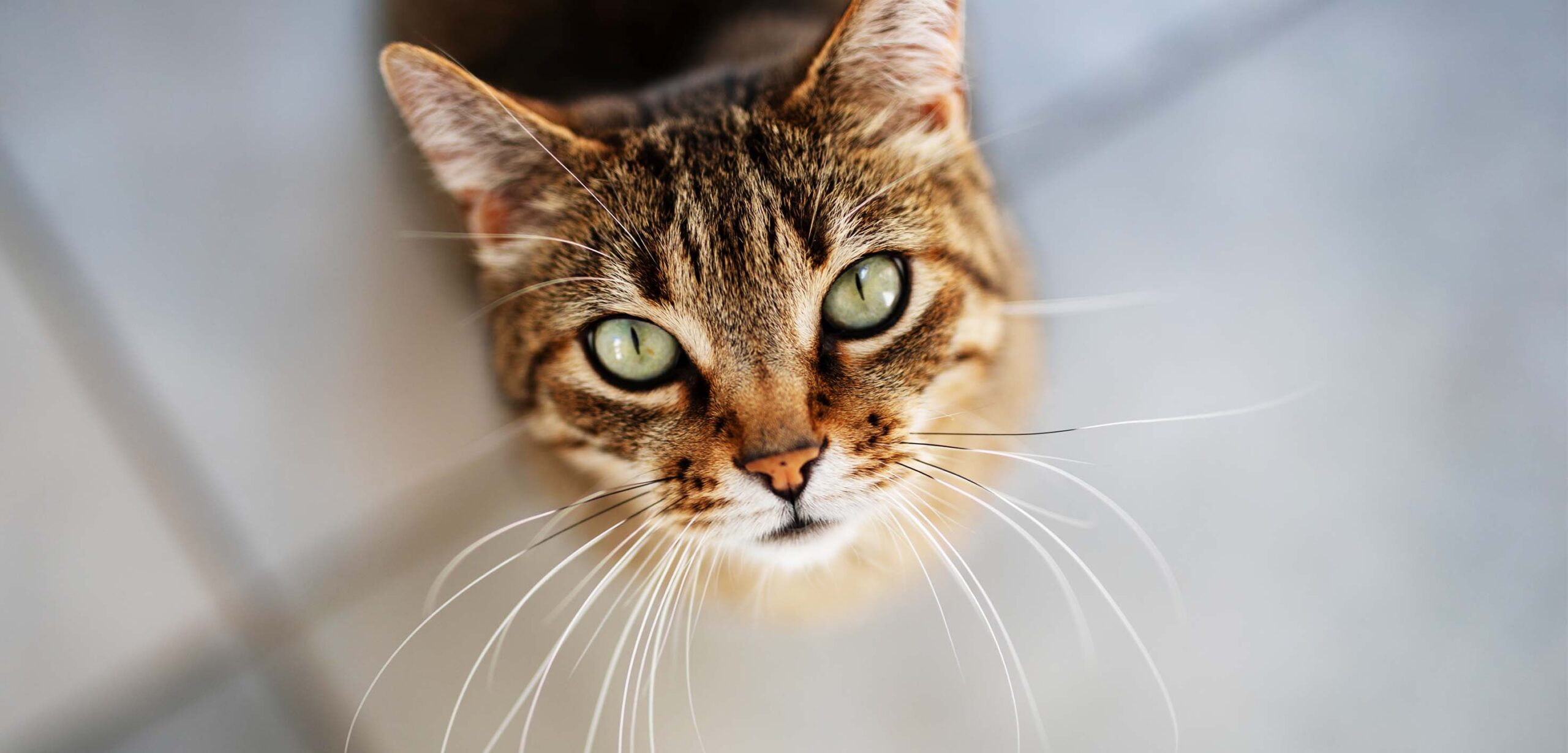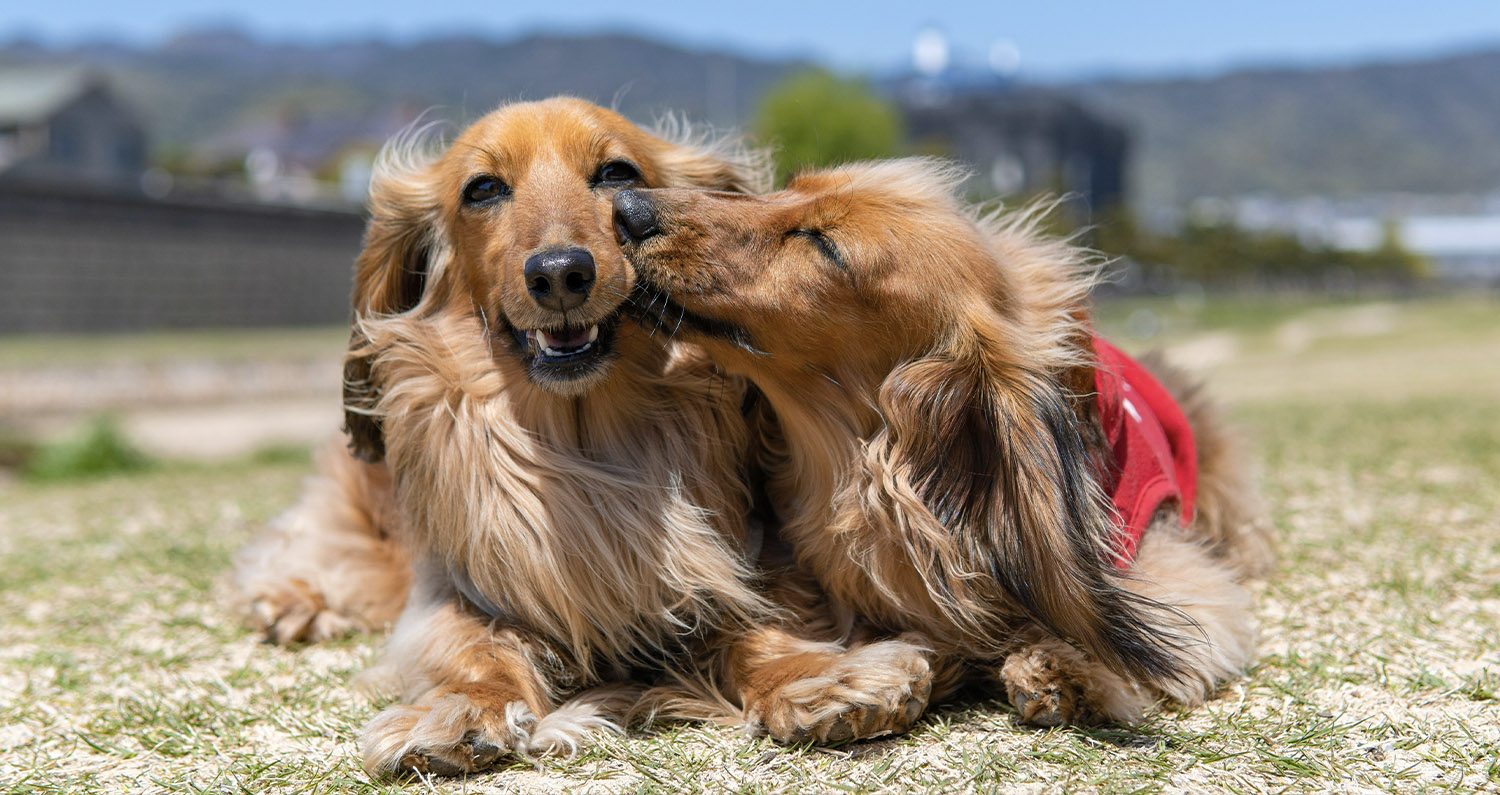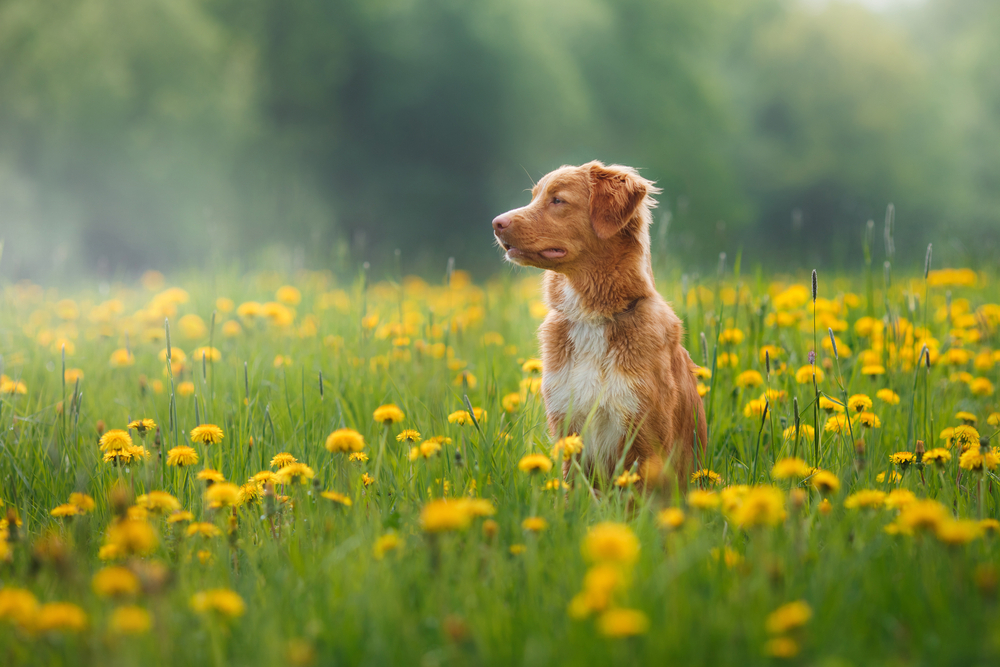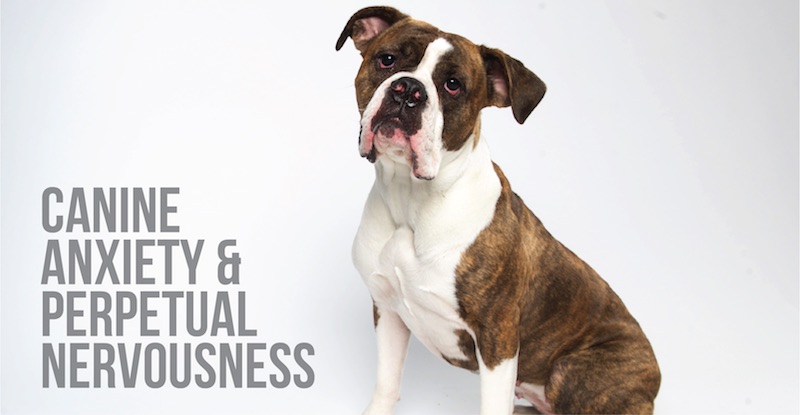
Every dog carries its own set of personality traits: its likes, dislikes, wants and fears. However, certain dogs may carry more of the fear trait, causing them to be more anxious and easily excitable. As always with overexcited dogs, there are multiple things that may be fully or partially responsible for the dog’s anxious behavior.
1. Environment
Assessing environment is crucial to pinpointing a dog’s anxiety. Some dogs–even if it is not in their personality or history to be anxious–may appear nervous simply because they are not in their ideal setting. For example, the energetic Border Collie is always more content spending its days running around on a farm than cooped up all day in a small apartment. Whereas, the snuggly King Charles Spaniel will be just as happy with a smaller home and lots of cuddles.
A dog that lives in an environment that is not conducive to his preferred lifestyle will likely develop increasing anxiety and destructive behaviors. Once you can determine that environmental boredom is not the underlying issue, move on to next step.
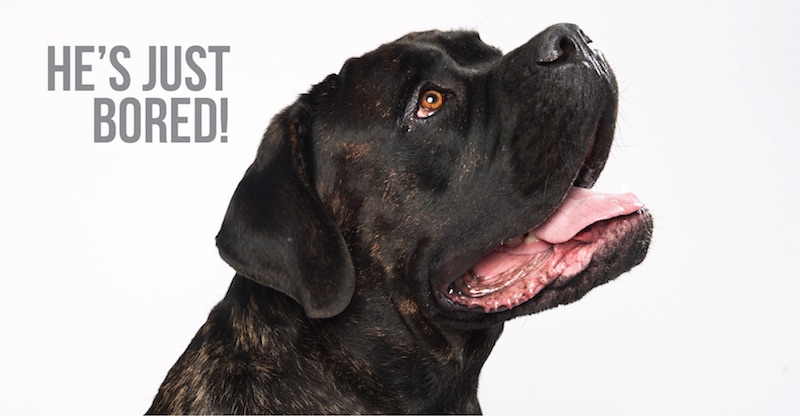
You May Also Like: He's Just Bored!
You come home from a long day of work, ready to relax with your pooch. As you crack open the door, your heart almost falls out your butt… Stuffing. Everywhere. Three pairs of shoes in pieces. Carpet fibers sprinkled about like confetti. Couch corners shredded. Everything you love and hold dear ripped out from under you in just a few short hours.
2. Cause & Effect
Environment can play a huge role in canine anxiety, so it’s incredibly important to determine if that’s the cause of a dog’s anxiety. If that can be accurately ruled out, look at the other potential causes for your dog’s nervousness. Is he a clingy dog suffering from separation anxiety? Does he have thunderphobia or a fear of loud noises? Does he have fear aggression? (It’s worth noting that an aggressive dog that lashes out solely because he’s afraid is very different from an aggressive dog that lashes out solely because he can. Dogs who exhibit fear aggression act out purely because they are so afraid, they feel they have no other option).
Determining what is causing your dog’s anxiety is the first step to effectively dealing with it.
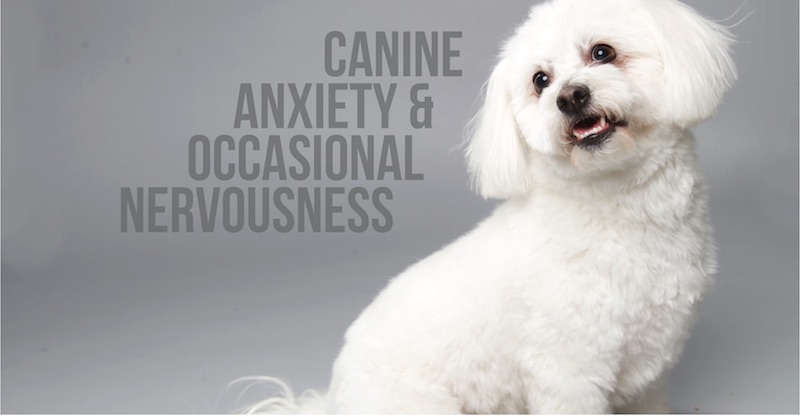
You May Also Like: Canine Anxiety & Occasional Nervousness
Brief bouts of nervousness, generally caused by abnormal situations, such as loud noises, vet trips, new house guests, or traveling can be classified as situational stress, which can affect dogs of all shapes and sizes! Read more about this type of nervousness.
3. Past Trauma
Sadly, the mistreatment and abuse of a dog may contribute to its current behavior. Dogs who previously experience a traumatic or abusive experience may have quickly developed a heightened sense of fear or anxiety. Though they have since been removed from their unfortunate situations, some dogs still carry the weight of the stress they experienced in the past. For these dogs, lots of love and a little extra praise is in order.
If this is the case for you dog, investigate what he finds comforting and try to avoid the situations that set him off. Herbal supplements may help him to relax and find his normal, happy self – a great tool for helping him move on from his heavy past.
4. Personality
Some dogs have certain personalities that are more prone to fear and anxiety. From a Chinese perspective, the assessment of a nervous dog can be based on the Five Element theory. The Five Elements are wood, fire, earth, metal, and water. In a holistic sense, each element has specific organs associated with it, typically a solid and hollow organ (to accent the yin and yang of each element). For example, water is associated with the kidney (a solid organ) and the bladder (a hollow organ).
Holistic veterinarians believe each living being has a certain set of personality traits that match with each element. The type of element associated with each dog correlates with its disharmonies. Fire dogs are emotional and easily excited. Once they get excited, it’s difficult for them to settle back down. Typically, Blue Heelers and Australian Shepherds fit under this persona.
However, any breed can fall under any of the elements, and it is possible for a dog to share characteristics from more than one element. Holistic vets theorize that canine anxiety is tied between water (the kidney and bladder) and fire (the small intestine, pericardium, and heart). Typically, anxiety is believed to be caused by an imbalance between the kidneys and heart shen. The kidneys (associated with water) start to deplete and cannot control the heart energy flow (associated with fire). Essentially, the water element is not able to regulate the strong, fire-burning element in overexcited dogs.
Interestingly enough, canine anxiety is seen to get worse with age, just as the kidney is usually the first organ to deplete in older dogs. As the kidney depletes, the water Qi depletes and cannot control heart fire. Dogs that were a bit clingy and shy as youngsters develop extreme anxiety and fear later on in life.
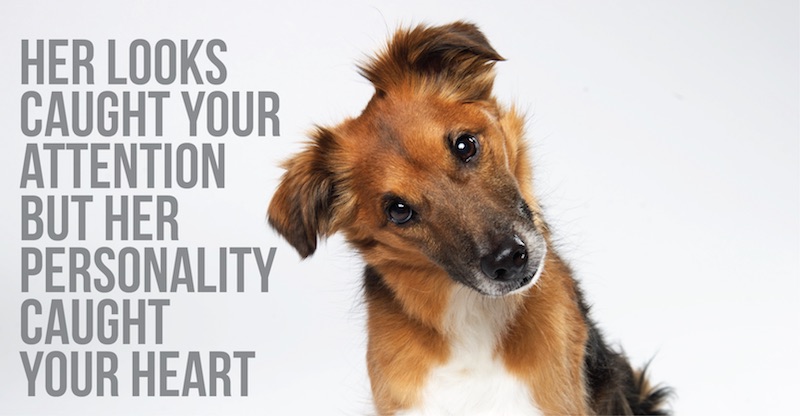
You May Also Like: Personalities
Like humans, animals each have their own unique personalities. As any multi-pet owner would tell you, each of their animal’s act and react very differently from each other. According to Chinese theory, a dog’s personality traits stem from one of the Five Elements
Combatting Anxiety
Food Energetics
Two ways to combat anxiety are though food energetics and through herbal supplementation. Food is the foundation of health, both bodily and spiritually. Holistic vets adhere strongly to the idea that “you are what you eat” – an animal’s daily diet not only has a huge effect on its bodily health, but also its way of being. A balanced diet for a carnivore is much different than that of a human.
- A balanced diet consists of:
- Skeletal and organ meat (should be the majority of the meal)
- Cooked veggies (can help to break down cellulose in an animal’s body)
- Fruits (can be a great source of vitamins and minerals)
- Grains (should make up the smallest part of a carnivore’s diet)
More specifically, fire dogs respond especially well to neutral or cooling foods, as warming foods tend to exacerbate the excitement. Neutral foods will not increase or decrease Qi (energy) in your dog. However, cooling foods are very beneficial for the dogs that are always a little tense and warm to the touch. They can help to balance the fire element within your dog, naturally cooling his inner temperature (and consequently, his resulting anxiety).
- Cooling foods include:
- Duck, rabbit, whitefish, cod, scallop
- Fruits & veggies, especially avocado & apples
- Barley & sesame seeds
- AVOID lamb & venison (these are the warmest of all protein)
- Neutral foods include:
- Beef, pork, goose
- Potatoes, cheese, milk
- White rice
Calming Supplements
In addition to a balanced diet appropriate for the fire dog, a daily herbal supplement can help to tone down the anxiety. It’s important to find a supplement that helps calm dogs who are responding to environmentally-induced stress or stress caused by a past traumatic experience. There are several important herbs to look for when selecting the right supplement. Rehmannia root, asparagus tuber, sour jujube seed, ginseng, and biota seed (along with severl other herbs) can work together to not just calm the spirt, but also maintain proper kidney and heart health.
Dog owners should take note, though, that most herbal supplements are not a quick fix. They do not act as instant tranquilizers, but instead work over a period of time to help calm a dog’s overanxious personality. Instead, a gradual change can be seen as the herbs work to have a true effect on the dog’s way of being rather than just acting as a quick fix to a one-time situation (which is exactly what dogs with perpetual nervousness need. For dogs that experience occasional nervousness due to interruptions in daily routine, thunderstorms, fireworks, traveling, vet trips, etc., check out our other post addressing situational anxiety).
- Calming herbs include:
- Rehmannia root, asparagus tuber (have cooling effects and help maintain kidney yin which especially important for anxious dogs)
- Jujube seed, schisandra fruit (prevent leakage of heart Qi, can also calm stress in the body)
- Biota seed (used to calm the spirit)
- Ginseng (promotes yin energy and removes excess yang energy)
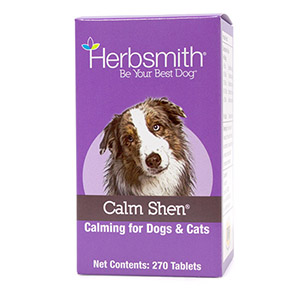
Long-Term Calming Supplement
A calming blend of herbs for dogs & cats with long-term nervousness, hyperactivity, discontentment, or stress. Calm Shen is a great formula for behavioral problem management and may help to curb destructive behavior by helping dogs and cats maintain calmness. It may also reduce hyperactivity by promoting a sense of relaxation and mental alertness without drowsiness.

